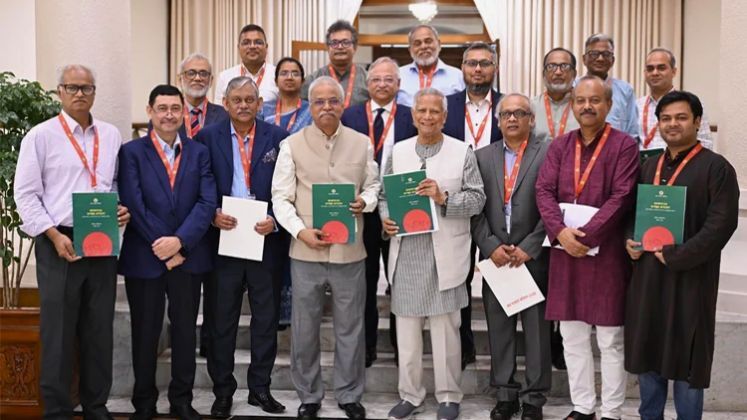
The newly established Labor Reform Commission has submitted a comprehensive 25-point set of recommendations to the Chief Advisor, emphasising the protection of workers’ rights, sector-specific wage policies, the creation of a dedicated labour authority and the enactment of specialised legislation for workers’ welfare.
On 21st April, a press conference was held at the Labor Building, where commission members underscored that the success of these proposals hinges on the Government’s goodwill and steadfast commitment. Earlier that day, the commission formally handed over its report to Chief Adviser Dr. Muhammad Yunus at the State Guest House Jamuna.
Despite Bangladesh’s 54 years of independence, labourers, who constitute a significant portion of the population, continue to endure widespread exploitation, discrimination and unfair treatment. Many of these injustices remain unresolved, highlighting the urgent need for reform.
This marks the first time in the country’s history that a dedicated Labor Reform Commission has been formed. Its report identifies longstanding issues faced by workers and offers targeted recommendations aimed at ensuring fair wages, stronger enforcement of labour laws, gender rights and safer working environments.
Syed Sultan Ahmed, Chair of the Labor Reform Commission and Executive Director of the Bangladesh Institute of Labor Studies (BILS), stated, “Labour sector reforms are vital for creating a society free of discrimination. Improving the living standards of 80 million workers can only be achieved through implementing the strategies outlined in this report.”
He also emphasised the importance of universal labour protections, stating, “Our primary goal is to ensure that labour protections in Bangladesh are accessible to all.” He called for broad reforms in labour legislation, institutional frameworks, workers’ rights and representation.
Among the key recommendations, the commission advocates for universal maternity leave of six months, extendable up to two years, along with measures to eradicate sexual harassment and child labour in workplaces. Special focus is also placed on safeguarding migrant workers’ safety and skills development. Additionally, draft laws to protect media workers are proposed.
The commission advocates for the creation of both a labour commission and a wage commission to address various crises effectively and foster a culture of accountability. It urges the government to play an active role in implementing these recommendations.
Formed on 17th November 2024, under the interim government, the 10-member Labor Reform Commission is led by Chairman Syed Sultan Uddin Ahmed. Its members include former government officials, academics, trade union leaders, employers’ representatives and labour movement activists.
The commission’s recommendations reflect a concerted effort to improve labour conditions and ensure workers’ rights are upheld across all sectors in Bangladesh.






